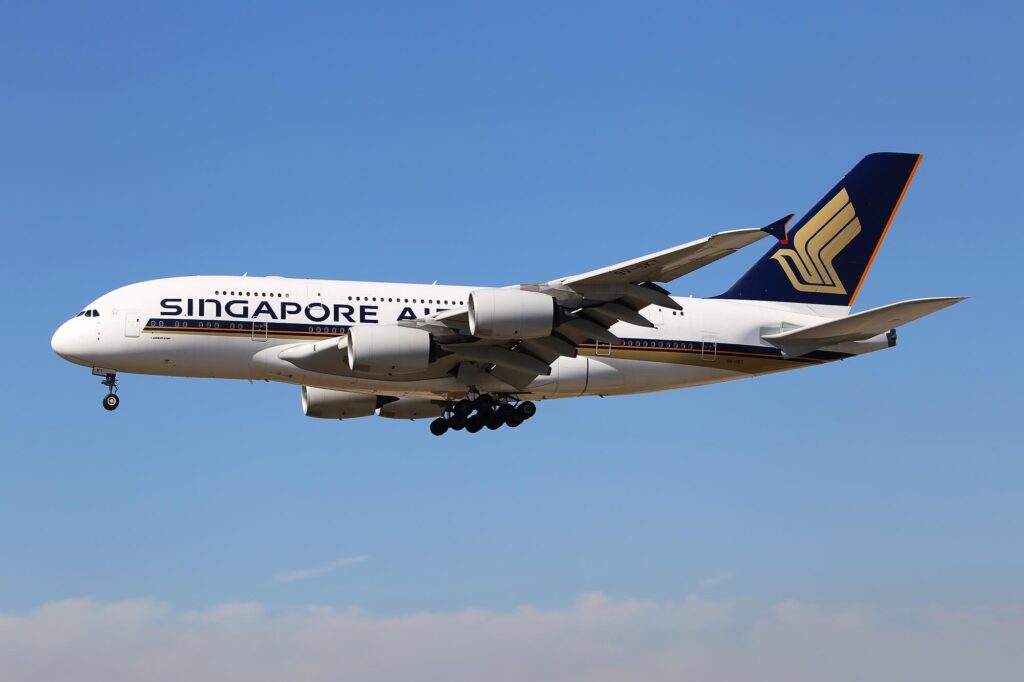More problems for Boeing as Singapore Airlines Ground Boeing 787
Seems like the worst PR year for Boeing is far from over. After the 737 MAX disasters and subsequent controversial facts arising how Boeing and the FAA approved the newest jet, today more problems have followed suit.
Singapore Airlines (SIA1) (SINGY) have announced that the airline is grounding two of their Boeing 787s because of engine issues. Singapore Airlines (SIA1) (SINGY) in total operate 9 787s with the Rolls-Royce Trent engines.
Preliminary reports from several sources indicate that the problem is with the Rolls-Royce Trent 1000 TEN engines and the engines’ blades cracking prematurely.
Previously, Rolls-Royce had to fix the Trent 1000 engines as it had the same issue with the engine blades. The TEN variant of the same engine was supposed to fix the issue, but it seems to be suffering from the same failure.
Grounded and TEN new developments
All Nippon Airways conducted the first Boeing 787 commercial flight with the Rolls-Royce Trent 1000 engines in late 2011.

Subsequently, after its debut, the Rolls-Royce engine suffered from reliability and durability problems. The issues reached their zenith in 2016 when All Nippon Airways engineers discovered that the turbine blades started to crack. The cracks were related to corrosion.
While Rolls-Royce provided a short-term solution and quickly developed new blades that were more resistant to corrosion, the engine manufacturer needed a new solution for the long term.
So, Rolls-Royce used their experience from the Trent XWB that Airbus uses on its A350s and the background of the Trent 1000 issues to develop an engine to end all the problems – the Trent 1000 TEN.
However, the excitement was short lived.
From TEN to ZERO
The TEN engine made its debut commercial flight in November of 2017. In addition to the improved reliability, Rolls-Royce promised airlines a reduced fuel burn compared to the previous variant.
Most importantly was, of course, the improvements to the longevity of the engine. At first glance, everything looked okay.
But Singapore Airlines (SIA1) (SINGY) have discovered signs of cracks on their engines during preliminary maintenance checks. Subsequently, the airline grounded 2 of its 9 Boeing 787 Dreamliners.
The airline has indicated that some flights will be affected by the groundings, so passengers are advised to check in with their flight status. Singapore Airlines (SIA1) (SINGY) will operate other jets from their fleet to cover for the grounded Boeing 787s.
PR Nightmare
As for Boeing, although the company is at no fault whatsoever, the hysteria might take over once again. Boeing is under a lot of trouble for its Boeing 737 MAX issues that claimed the lives of more than 300 people. Its reputation is absolutely shattered, as the general public discovered the shady practices of the plane manufacturer when certifying the MAX.
And now, as the public outrage is still boiling and the general population is very doubtful about the safety of Boeing, this could not have come at a worse time. Even though the engines built by Rolls-Royce are at fault, but they are specifically built for the Boeing 787. As a result of this, the names of Rolls-Royce and Boeing will be inseparable in the headlines. Additionally, the word grounded will also be present in the headline.
It seems like the American aircraft manufacturer might be facing a tough year for them, as people will doubt twice before hopping on a Boeing. Which is a shame, as throughout history the company was recognized by such slogans as “If it ain’t a Boeing, I ain’t going!”, related to their first commercial jetliner – the Boeing 707.
Hopefully, Boeing will manage to handle the situation. The company going down-under would be disastrous for the aviation industry, as a monopoly never leads to anything good.
Like every company needs competition, so does Airbus need Boeing and Boeing needs Airbus in order to move forward.
And nobody needs any of these companies to become history.

